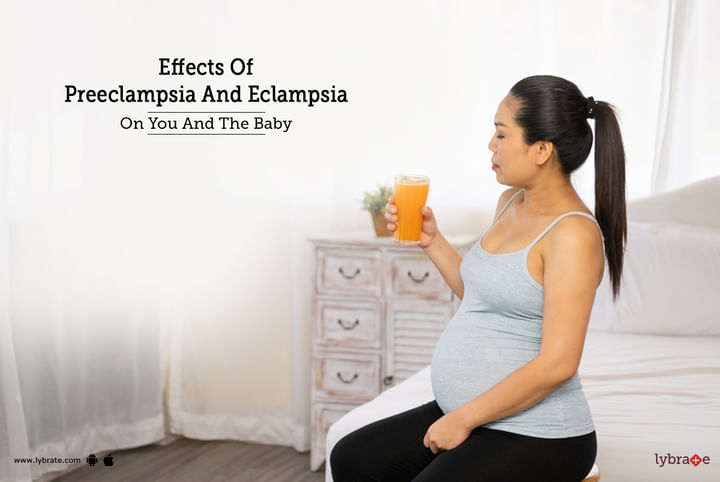Effects Of Preeclampsia And Eclampsia On You And The Baby
Preeclampsia is a condition that affects women during pregnancy. It is characterized by increased blood pressure and high levels of protein in the urine. Women with preeclampsia also experience swelling in the feet, legs, and arms.
Researchers suspect that excessive body fat or poor nutrition are the primary contributors to preeclampsia and eclampsia.
If left undetected, preeclampsia can lead to a more severe complication, known as eclampsia. Eclampsia can put you and your baby at risk, and can even lead to death (in rare cases).
How do Preeclampsia and Eclampsia affect the mother?
Preeclampsia and eclampsia can cause a host of complications for the mother, such as the following –
- HELLP Syndrome – HELLP Syndrome refers to three different conditions – low platelet count, elevated liver enzymes, and haemolysis. This generally occurs late in pregnancy and affects the processing of RBC, functioning of the liver, and blood clotting.
- Seizures
- Heart and renal failure
- Water in the lungs
- Bleeding from the liver
- Reversible blindness
Effects of Preeclampsia and Eclampsia on the Baby
Preeclampsia can lead to problems with the placenta in the initial stage of pregnancy. This may pose risks, including the following to the baby –
- Lack of nutrients and oxygen may prevent the foetus to grow properly
- Preterm birth
- Stillbirth – this happens when the placenta is separated from the uterine wall
- Infant death
Stillbirths are more common when the mother has suffered from a severe form of preeclampsia, like HELLP Syndrome.
Preeclampsia and eclampsia are linked to a myriad of health issues and life-long challenges for prematurely born babies. These may include cerebral palsy, learning disorders, epilepsy, deafness and blindness.
There is no particular cure for preeclampsia and eclampsia. Treatment, however, depends on how close you are to your due date, and how much the foetus has developed. In the case of mild preeclampsia, your doctor may recommend resting, healthy eating – that limits salt intake – and regular prenatal checkups.


+1.svg)
